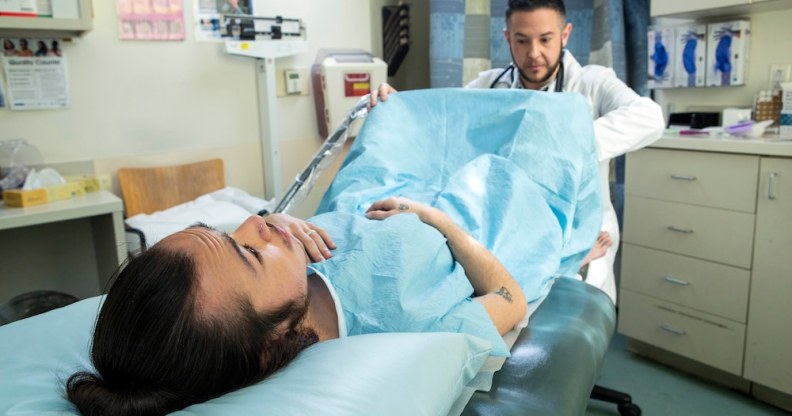Doctors given revolutionary draft guidance on trans pregnancy and reproductive care

Trans, non-binary and gender diverse folk face many barriers in accessing gynaecological and obstetric care. (The Gender Spectrum Collection)
Revolutionary draft guidance for obstetricians and gynaecologists on caring for trans, non-binary and gender-diverse people has been released.
Many trans adults “have specific obstetric and gynaecological healthcare needs” – including care related to childbirth, contraception, fertility, infant feeding, gynaecological procedures and cancer care – according to the Royal College of Obstetricians and Gynaecologists.
However, new draft guidance from the college concedes that these needs are not being consistently included in training and professional development for healthcare professionals.
The document aims to fill this gap, supporting “healthcare professionals in providing inclusive and accessible care for all”.
Some of the key recommendations relate to the care of pregnant people, and include discussing fertility preservation options with those wishing to undergo medical transition, “regardless of their gender expression”, as well as asking trans men about their preferred manner of feeding their babies.
“For trans men who choose to chest feed, offer chest feeding support in the same manner as for cis women,” the guidance states.
It also recommends that obstetricians and gynaecologists take the time to learn about the healthcare barriers that trans, non-binary and gender diverse folk face, the importance of respecting a patients preferences when it comes to pronouns, titles, names and family relationships, and the “contextual factors that may affect individual wellbeing and health outcomes”.
During a doctor’s career, as Phil Rolland, a consultant gynaecological oncologist who worked on the guidance, points out: “It is highly likely that if an obstetrician or gynaecologist hasn’t already consulted or treated a trans or gender diverse patient then it is only a matter of time before they do.”
The document covers recommendations across the entire spectrum of gynaecological care, from assessing the causes of sexual dysfunction, to diagnosing cancer following a vaginoplasty, to how professionals can liaise with gender identity services.
The draft guidance will be open for consultation until 6 September.
Dr Edward Morris, president of the Royal College of Obstetricians and Gynaecologists, said in a statement: “Sadly, trans and gender diverse individuals say they often feel judged and misunderstood by the health service. This can act as a barrier for them when it comes to accessing vital care and we as healthcare professionals have a role to play in making them feel listened to and recognised.
“This draft guideline is our first attempt to ensure we are providing personalised care for all our patients. We welcome feedback on this draft to ensure the guideline is the best as it can be for clinicians and the trans and gender diverse individuals who use our services.”

